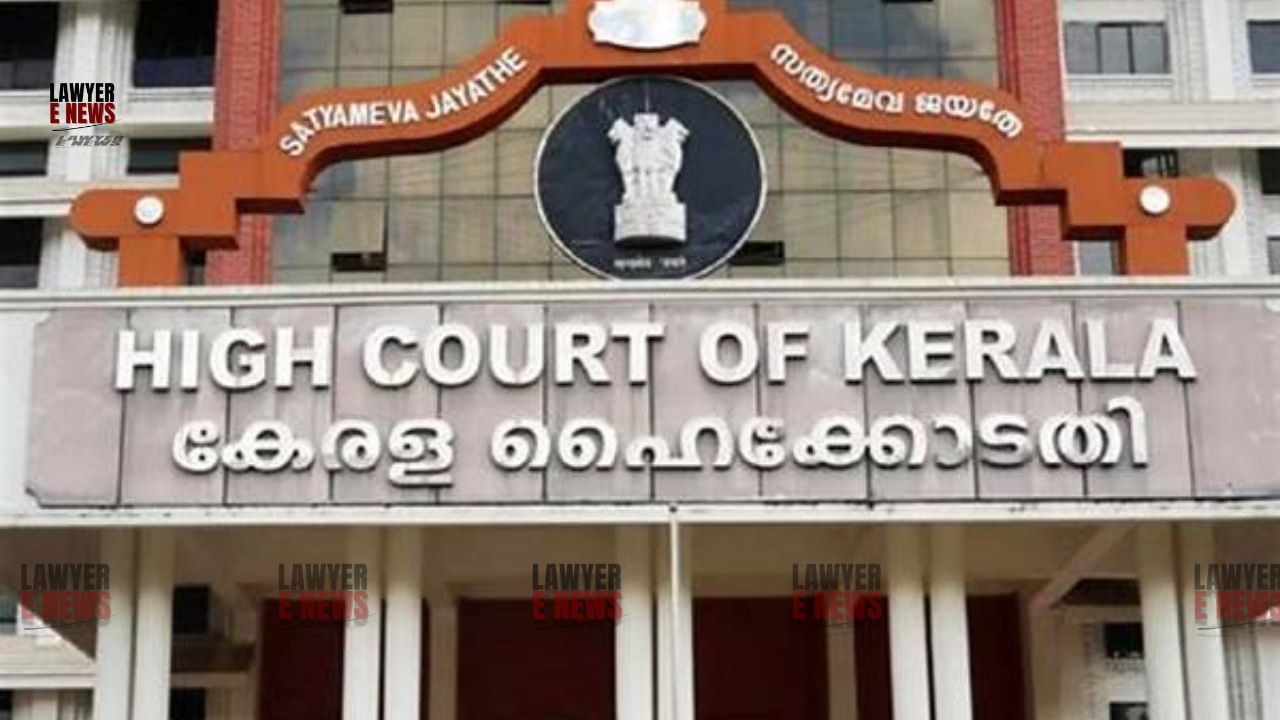-
by Admin
15 February 2026 5:35 AM



"Variations in signatures over time are natural and do not invalidate a Will," rules High Court. Kerala High Court dismissed an appeal challenging the validity of a Will, affirming the trial court’s decision to uphold the document. A division bench comprising Justices Sathish Ninan and P.V. Balakrishnan held that the Will, executed by the late Madhavan, was free of suspicious circumstances, duly executed, and properly attested in accordance with Section 63(c) of the Indian Succession Act, 1925, and Section 68 of the Indian Evidence Act, 1872.
The dispute centered on a partition suit filed by Thankama Sreedharan, claiming inheritance of Madhavan's property as one of the legal heirs. The defendants contested the suit based on a registered Will (Ext. B2) executed by Madhavan, which excluded the appellant and other branches of heirs. The Will bequeathed the property to specific relatives who cared for him during his lifetime.
The trial court upheld the Will, leading to the present appeal where the appellant alleged fabrication, suspicious circumstances, and Madhavan’s lack of testamentary capacity.
Whether the Will (Ext. B2) was duly executed and attested under law.
Whether suspicious circumstances surrounded the Will's execution.
The court relied on the testimony of DW2, a neighbor and attesting witness to the Will, who confirmed Madhavan’s sound mind and adherence to the procedural requirements under Section 63(c) of the Indian Succession Act. The court noted:
“DW2’s testimony satisfies legal requirements, and no material has been brought out to discredit his credibility. Selecting a neighbor as a witness adds to the genuineness of the document.”
Additionally, DW3, the Sub Registrar, corroborated the due registration of the Will. While registration alone is not conclusive proof, it lends credibility to the document.
The appellant argued that the Will's exclusion of one branch of heirs (including the appellant) was unjustifiable and suspicious. The court clarified:
"The purpose of a Will is to alter the natural course of succession. Exclusion of certain heirs, when supported by credible reasons, is not inherently suspicious."
The court found Madhavan’s decision reasonable, as he was cared for by the beneficiaries and had earlier executed a Will favoring their family.
The appellant relied on a handwriting expert’s report, suggesting discrepancies in Madhavan’s signature. The court dismissed the claim, stating:
“Variations in signatures over time are natural, especially when comparing documents spanning decades. Expert opinions alone cannot outweigh credible eyewitness testimony.”
Conversely, a fingerprint analysis affirmed the Will's authenticity, strengthening its validity.
The appellant claimed that Madhavan suffered from Alzheimer’s and lacked testamentary capacity. The court rejected the claim due to a lack of medical evidence or witness testimony corroborating the alleged illness. It observed:
“Madhavan’s activities, such as visiting the bank for pension formalities even a year after executing the Will, demonstrate his sound mental state.”
The appellant contended that the identity of the person who drafted the Will remained unclear. The court held:
“The non-disclosure of the drafter’s identity does not invalidate the Will, especially when the evidence confirms the testator’s capacity and intent.”
Dismissing the appeal, the High Court upheld the trial court’s findings, concluding:
The Will (Ext. B2) was executed and attested in compliance with the law.
The exclusion of certain heirs was a deliberate testamentary decision and not a suspicious circumstance.
Allegations of fabrication and mental incapacity lacked evidentiary support.
The court emphasized that a Will, being an expression of the testator's intent, need not conform to societal expectations of fairness.
The testator's autonomy in deciding property distribution through a Will.
The importance of credible evidence over speculative allegations when challenging a Will.
The principle that natural succession can be altered through testamentary instruments, provided legal requirements are met.
Date of Decision: November 12, 2024
